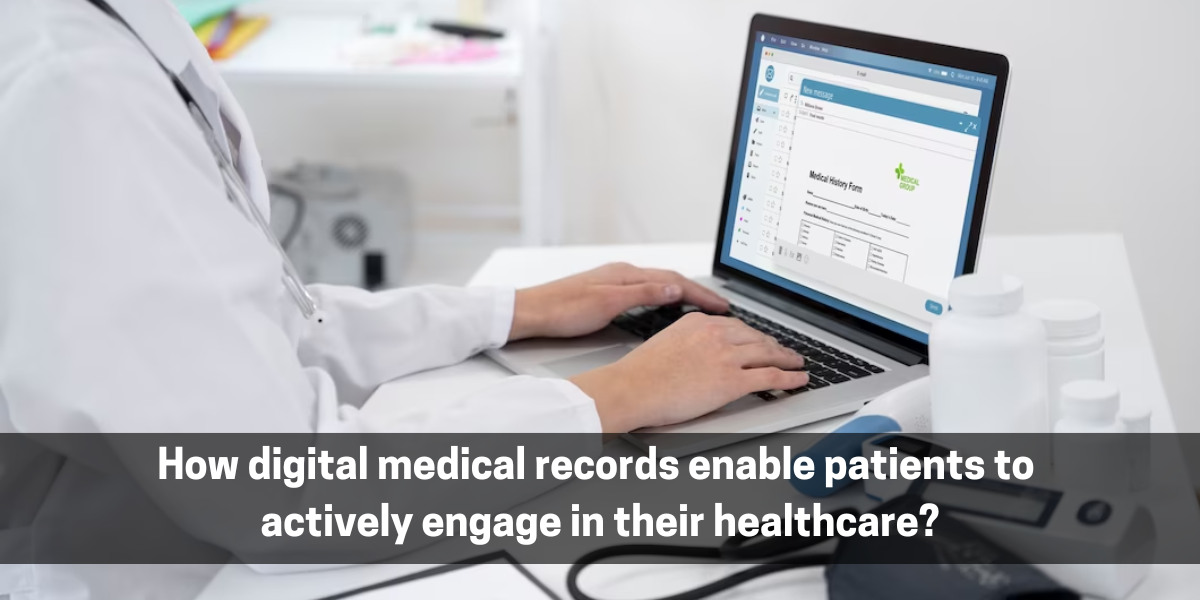In the medical field these days, digital medical records play an important role in ensuring smooth operations. These computerised records, also known as Electronic Health Records (EHR), contain a wealth of information about a patient’s health history. They include details about medications, diagnoses, tests, immunisations, allergies, and treatment plans. These records can be accessed by all healthcare providers involved in a patient’s care, allowing doctors and medical professionals to make informed recommendations regarding their treatment. However, the integration of digital medical records into healthcare facilities has not only benefited medical professionals but has also encouraged greater patient engagement in procedures, diagnoses, and overall well-being. Here we share some of the useful insights on how digital medical records are helping patients to actively engage in their healthcare:
- Access to health information: These records provide patients with convenient access to health information at their fingertips. Now, they can view their medical data such as medical history, test results, diagnoses, medications, and immunisation records using secure online platforms. Having access to this information enables them to stay informed and updated about their overall health status, while taking an active role in managing health conditions.
- Improved communication with healthcare providers: Digital medical records facilitate improved communication between healthcare providers and patients. Patients can reach out to medical staff securely by messaging them. Online portals offer further clarification and may even provide answers to questions that patients have. This enables timely and efficient communication, reducing the need for phone calls or in-person visits. The online platform can also provide reminders for appointments, medication refills and more.
- Appointment scheduling and reminders: Many systems offer features for online appointment scheduling and reminders. One can easily book appointments, reschedule if necessary and receive automated reminders via email or text messages. This essentially eliminates the chances of missing appointments.
- Secure sharing of health information: Digital medical records enable securely sharing health information between different medical professionals involved with the care. This improves care coordination and ensures that all providers have access to the most up-to-date and relevant information. Patients also have the ability to authorise the sharing of their medical records with other healthcare organisations, facilitating smooth transitions of care. Also, when digital medical records are properly encrypted, unauthorised access to the data does not pose a risk because the information becomes unreadable. In contrast to paper records that can be easily accessed by anyone, encrypted files can only be deciphered with a specific code key. This encryption process renders the data useless to potential thieves or unauthorised individuals.
- Patient education and resources: Digital medical records are a treasure trove of educational resources, health articles, and links to trusted medical websites. Patients can access this information to learn more about their conditions, treatment options, and preventive measures.
- Integration with wearable devices and health apps: Digital medical records can integrate with smart wearable devices, fitness trackers and fitness apps. This allows patients to collect and share data related to their activity levels, sleep patterns, heart rate and more. Integration of this data into their medical records means both patients and healthcare providers have a more comprehensive view of the patient’s health and track progress over time.
- Participation in formulating care plans: With so much information available digitally, patients are in a much better place to participate actively in developing and managing their care plans. Besides reviewing a healthcare provider’s treatment course, patients can now ask questions and provide valuable input.
In addition to digital medical records, Electronic Medication Administration Records (eMAR) also plays an important role in modern healthcare technology. Digital medical records include comprehensive electronic records of patients’ medical history, including diagnoses, treatments, lab results, and more. On the other hand, eMAR specifically focuses on the electronic management of medication administration. To know more on eMAR, check this useful read.







